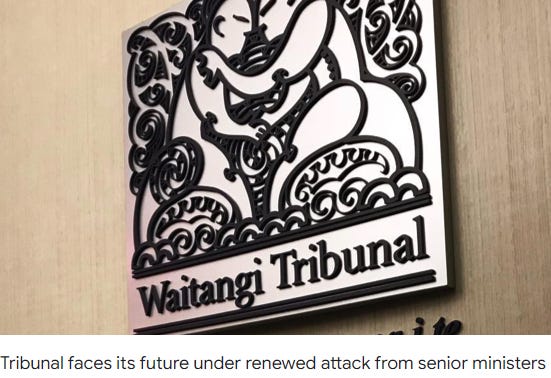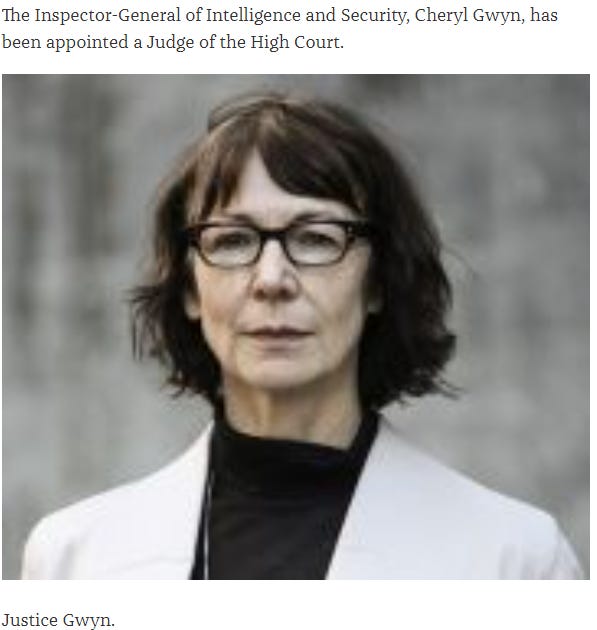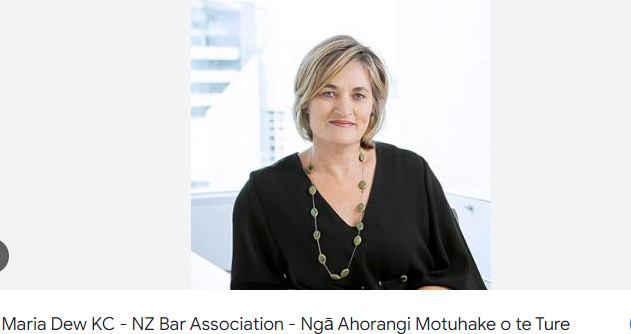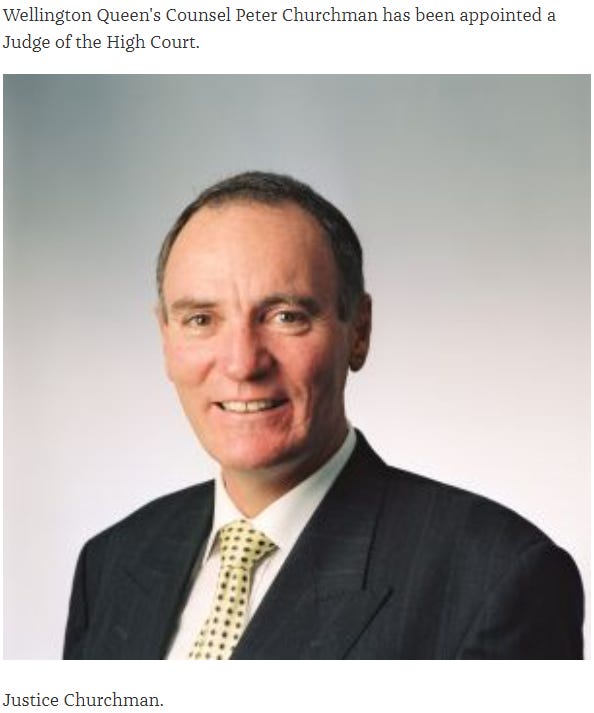Unholy constitutional conflagration rages on in New Zealand
The conflict is hot and will only get hotter. Figurative flames, ballistics and scalding hot air are blasting from multiple flues, in every direction. In all the hullabaloo, woo-woo, boo-hoo and utu, few have a clue about this attempted coup. Do you?
Enough Seuss. Let’s juice up on New Zealand’s basic constitutional structure.
Constitutional Arms of New Zealand
There are three basic branches of government in New Zealand:
There are three basic branches of government in New Zealand:
- Parliament, comprising our democratically elected representatives. This “legislature” passes laws and supplies the executive branch (Government) with Ministers from the ranks of the Members of Parliament.
- The Government, which runs the country and can propose laws for Parliament to pass (or not). The Government includes the public service, who are our unelected governmental bureaucrats. (The traditional notion of public “service” is a terrible casualty in this war.)
- The Judiciary (judges) who, in cases that come before the Courts, are supposed to apply and interpret the law – both the laws passed by Parliament and the so-called “common law” (legal rules that Parliament has not generated). Parliament can override the common law, with legislation. Judges are not elected. They get appointed through arcane processes involving dinner parties, sycophancy, ideological favoritism – and, just occasionally, merit.

But wait, there’s even more. The steak knives. The Waitangi Tribunal wields the knives, trying its best to stab the Government and slash the country to shreds. If the Tribunal stuck to its knitting, it would be a humble public service entity making occasional measured recommendations to the Government on Matters Māori. But the Tribunal has self-identified as a Three Headed Māori Monster; a Māori Parliament, Government and Court, all rolled into a renegade cohort of treacherous and subversive activists.
The latest battle
The most recent skirmish in this so-far bloodless civil war involves the irrepressible Government Minister, Shane “Matua” Jones.

It was revealed in Parliament on 27 August 2024 that, at a seafood industry hui in May 2024, Fisheries Minister Jones idly opined that High Court Judge Cheryl Gwyn is a “Communist Judge”.
Jones’ comment on Gwyn would have been lost in the mists of time, but in schoolgirlish fashion an officer of Māori Crown Relations - Te Arawhiti recorded the comment and snitched on Jones.
Jones defended himself in Parliament on the basis that Gwyn used to belong to the Socialist Action League (perhaps still does, who knows). From 2014-2020, Gwyn was the Inspector-General of New Zealand’s Security and Intelligence Service. Yes, you read that right.
Parliament Speaker Gerry Brownlee supported Jones, finding that Jones’ defence was “pretty reasonable”. ACT Leader David Seymour chimed in for Jones, expressing his surprise “that the leader of the Labour Party [Hipkins] believes ‘communist’ is a critical term”.

The matter would’ve died in Parliament but on 28 August Maria Dew, as President of the New Zealand Legal Bar Association, went into bat for the Judiciary, and against Jones and the Government, announcing:
- “It is fundamental for our democracy that judges are not the subject of personal attack or criticism by ministers that may risk judges being restricted in their role.”
- "Judges must be capable of being able to freely play their independent constitutional role in New Zealand."
Collins promised Dew that she’d have a word with Jones. And Jones has had further words of his own, opining that Court decisions are “beginning to show elements of totalitarianism”, adding:
“What I mean is that we're going to change the law that pertains to the takutai moana [Marine and Coastal Areas] because that law has given a status to the Treaty that overwhelms our democratic right to not only redefine takutai moana but it restores back to the sovereignty of Parliament from the judiciary the meaning of the legislation. That's democracy."
Battle lines drawn
This evolving and escalating war is fundamentally over the preservation of New Zealand Democracy and Parliamentary Supremacy. In one corner, we have the current Coalition Government, which likes to think it retains the traditional power to make binding and enforceable laws by majority vote in the democratically-elected Parliament.
The revolting opposition corner is cluttered with the following forms of protagonist:
- The Judiciary, which now thinks it can and should ignore and override laws passed by Parliament that don’t align with its ideological biases
- Opposition political parties Labour, Greens and Te Pati Maori, who maintain that a mystical unity called “Maori” never ceded sovereignty of New Zealand and therefore retains constitutional powers which, through the Waitangi Tribunal and otherwise, override Parliament.
- Mainstream Media, which doesn’t really understand what’s going on but sides with the current political opposition and thinks that those on the opposite side in this civil war are all just Racist, Transphobic Troglodytes.
- The Waitangi Tribunal, which wants to burn the house down.
The genesis of this current bruhaha lies in a 2021 decision of Court of Appeal Aotearoa in Re Edwards. Let’s extract the barren marrow of that decision (the decision is a tome of 215 pages) …
The Marine and Coastal Area (Takutai Moana) Act 2011 entitles people with Maori ancestry to “customary marine title” (basically, ownership of) marine and coastal areas. Multitudes of Maori groups have claimed practically all of New Zealand’s coastline under that Act.
Under the Act, an applicant group has customary marine title to an area if the group:
Holds the area in accordance with tikanga (for uninitiated, that’s Maori customary practices)
Has exclusively used and occupied the area from 1840 until the present day without substantial interruption, or has received it from another Maori group in accordance with tikanga
The judge in the Re Edwards case was a chap called Peter Churchman.

Churchman didn’t like the legislative requirement – in order for a Maori group to be able to get customary marine title to an area – that the area must have been exclusively used and occupied from 1840 until the present day without substantial interruption and in accordance with tikanga. Church’s felt that requirement is soooo unfair. So, Peter simply ignored the statutory wording and significantly watered down the prerequisites for customary marine title. I’ve covered this sort of brazen judicial activism in previous Substacks:
Judge Gwyn, worshipping the Churchman revisionist approach to customary marine title, has in 2024 granted such titles, on the Wairarapa coastline, to five Maori groups.
Churchman and Gwyn have been quite willing to ignore Parliament, but our current Government is not willing to ignore Churchman and Glynn. Our Government is therefore going to pass further legislation to correct Churchman’s revisionist judicial reinterpretation of the requirements for coastal marine titles, as expressly set out in the Marine and Coastal Area (Takutai Moana) Act 2011.
The Law Society has predictably gone full noise against the Government’s corrective legislation, making a submission to Māori Crown Relations - Te Arawhiti (the same ones who snitched on Jones) railing against the legislation on the basis that it…. surprise, surprise, drum roll…breaches the Principles of the Treaty of Waitangi.
Judicial overreach and childishness
In New Zealand’s activist Judiciary, we therefore have a cry bully Woke outfit that can give it but can’t take it. We have judges and a legal profession elite who delight in encroaching on Parliamentary sovereignty, usurping and undermining Parliament, and then have infantile hissy fits when the Government punches back and rightly puts them back in their appropriate box.
Who would you prefer to run the country – a Government composed of people elected to our Parliament, who can be booted out, or an unelected and unaccountable elite of activist judges and Waitangi Tribunal wreckers?
John McLean is a citizen typist and enthusiastic amateur who blogs at John's Substack where this article was sourced.


8 comments:
In another posting, one person asked for information on the Treaty principles.
In brief:
1.Peters: no principles - only Articles
2.Seymour: 3 Articles - each states a principle
3.TOW Act 1975, TOW Amendment Act 1885: these introduced more " principles " ( notably Maori-Pakeha cooperation and redress ) which are not mentioned in any Article
4. A 1971 Maori Affairs document mentions 7 principles - which are significantly removed from the 3 original Treaty Articles.
Seymour focuses on the 3 principles matching the 3 Articles:
1.kawanatanga - right to govern
2. tino rangitiratanga - property rights of Maori and Pakeha
3. the equality of all citizens under the law.
One has to look at how judges are appointed.
In the past, judges in the High Court tended to come from ambitious QCs. In the District Court, they were often Courtroom lawyers at the end of their careers. If a law firm wanted to get rid of their senior litigation partner, who was past their used by date, they got them appointed to the bench.
Today, High Court judges are often ex-public servants, many of whom have hardly any prior Courtroom experience. In the District Court, the main qualification seems to be being Maori. Just look at all the press statements about a new judges. They are almost always Ngati this and that. In the "expressions of interest" page on the Justice Dept website, for becoming a judge, one of the first questions is one's Iwi affiliations.
After all that, Te Hunga Rōia Māori o Aotearoa (the Maori Law Society) are consulted on all potential Judicial appointments. Any lawyer whose views are contrary to their is unlikely to get the nod.
it would br great if anything as redable and objective as this occasionally appeared in the msm. The judicary view is very distorted by the instict to ensure long term very full employment of their profession's very lucrative services. One occasionally reads of tradespersons who have made work for clients. Their activities are nothing compared with the legal fraternity.
History shows that Churchman represented Ngai Tahu in their pilfering of anything and everything as they misrepresent NZ law before he ignored comity and conflicts of interest as a judge.
An excellent summation of a dire situation that our politicians have created, all without the mandate of the public. It's overdue we all had the discussion and the right to determine how we want our country to be governed and the future role of the Treaty (if any) in our lives. Prime Minister Luxon, you had better make it so, for we the public (that pays your salary), will not settle this time for less.
Anonymous 5:06am - very interesting comment. Why do we have a Maori law society? We don’t have Asian, Pacifica or Indian law societies do we? We’re all New Zealanders, just fellow human beings equal under the law. This racial separation has got to stop. Show me where it has worked the world? It hasn’t worked! Let it go and let’s move this country forward.
A very lucrative and apparently corrupt treaty industry has now become well established in this country. If this problem remains unaddressed the future of this country will be grim indeed.
Sadly it's only a few rotten apples, that are trying to take over New Zealand. But if something isn't done soon they will succeed. And the future of this country will be very grim indeed. Tribalism wasn't working for them in the past, why would it work now. The world is too small for that.
Post a Comment
Thank you for joining the discussion. Breaking Views welcomes respectful contributions that enrich the debate. Please ensure your comments are not defamatory, derogatory or disruptive. We appreciate your cooperation.